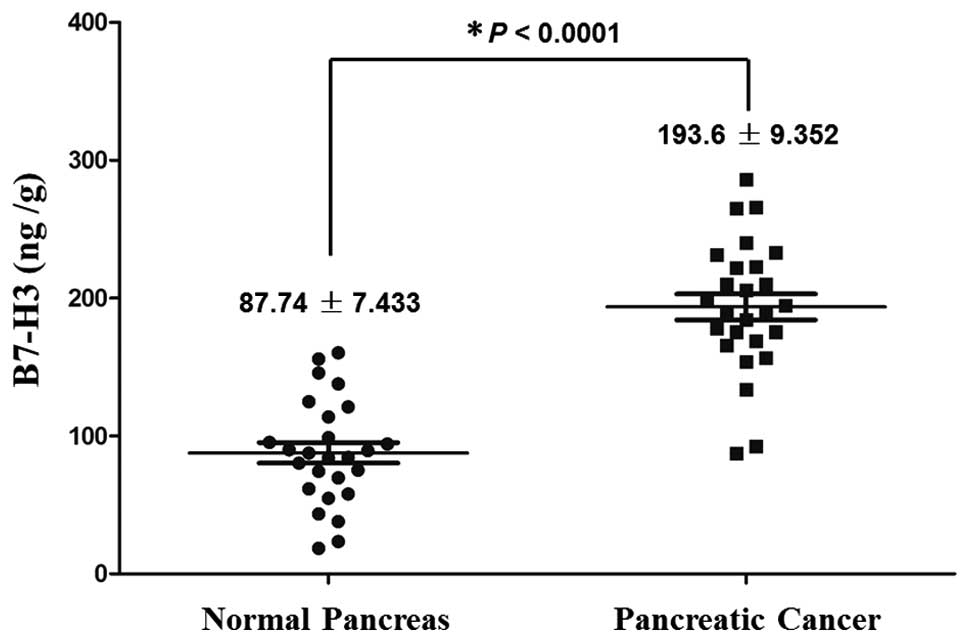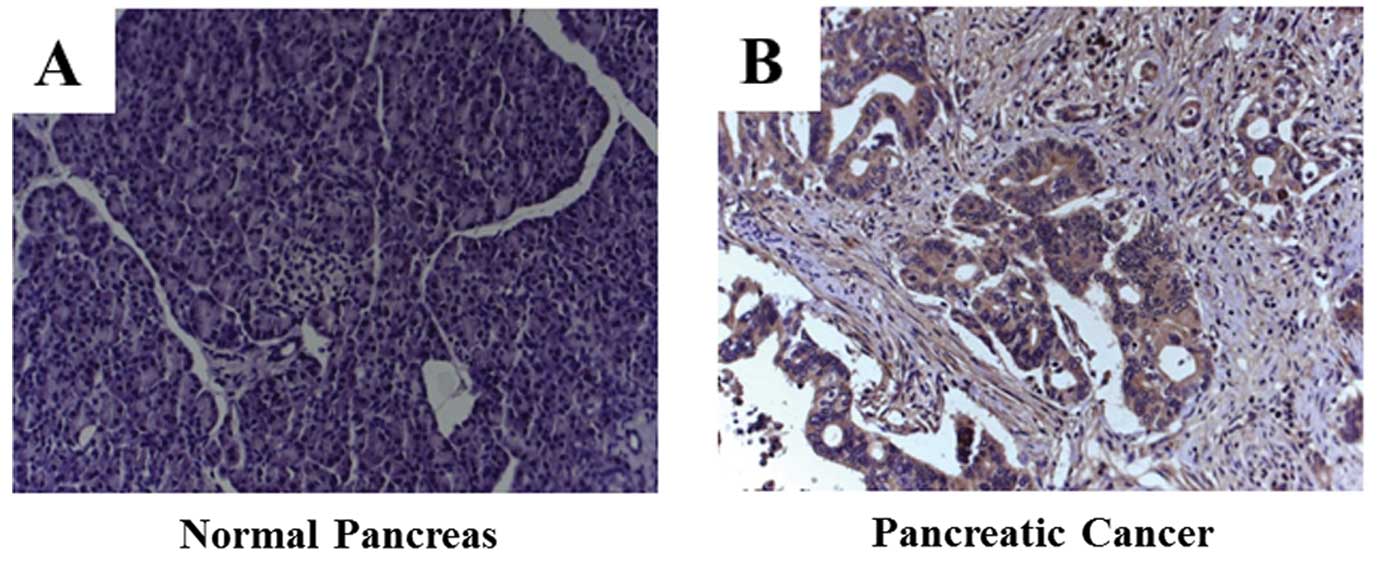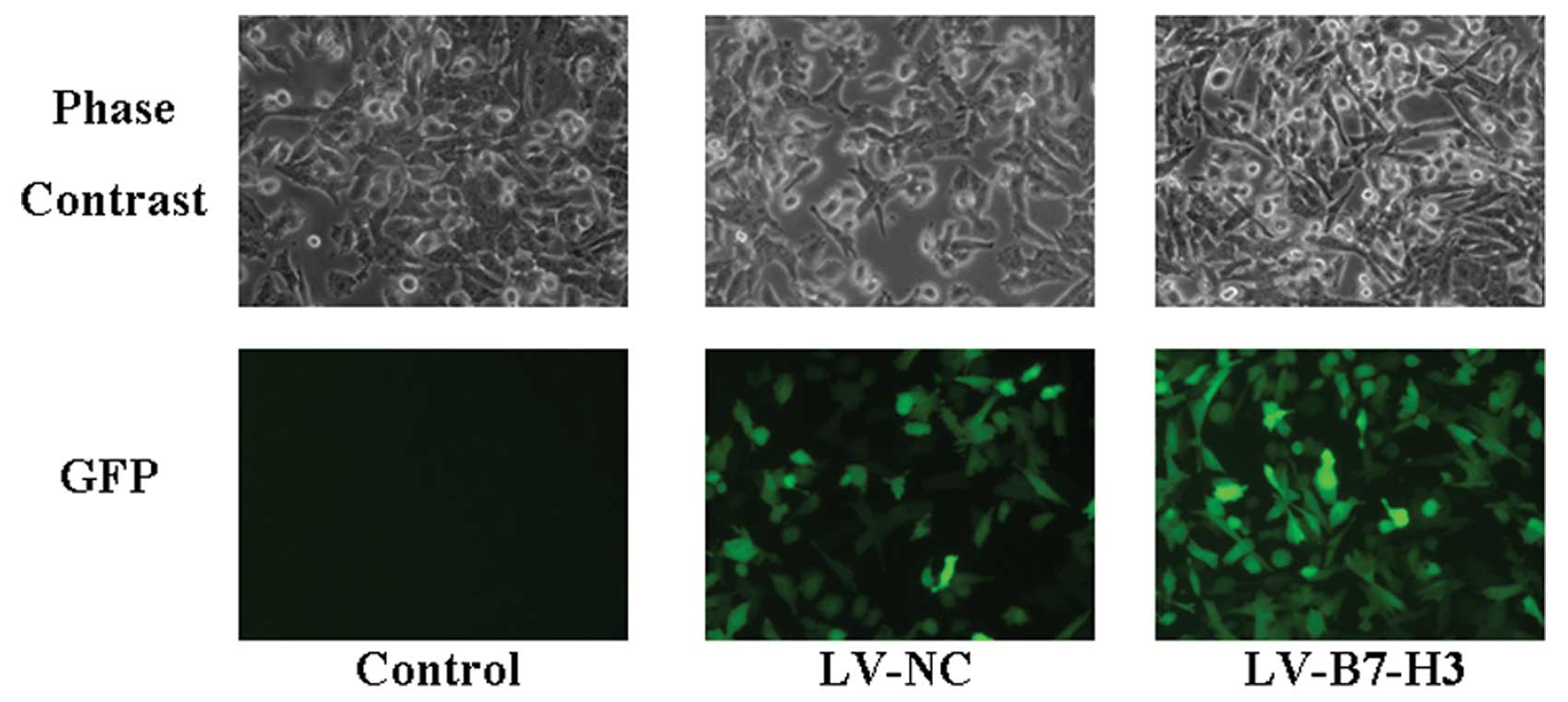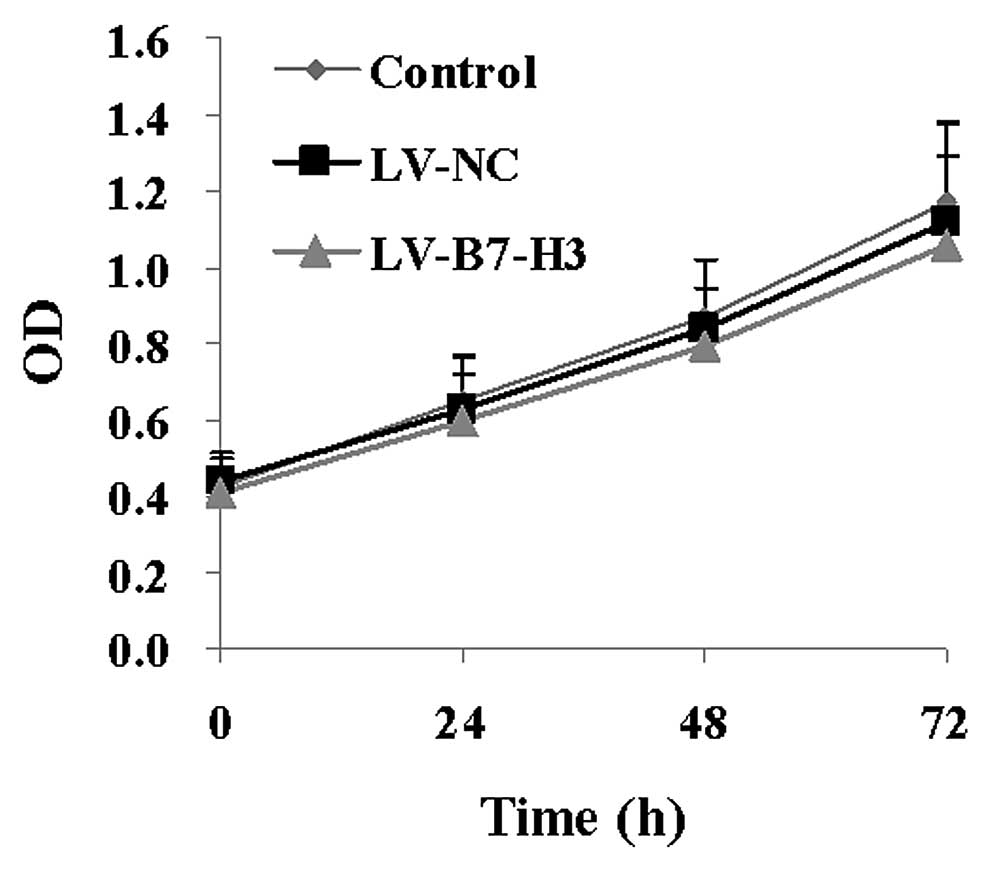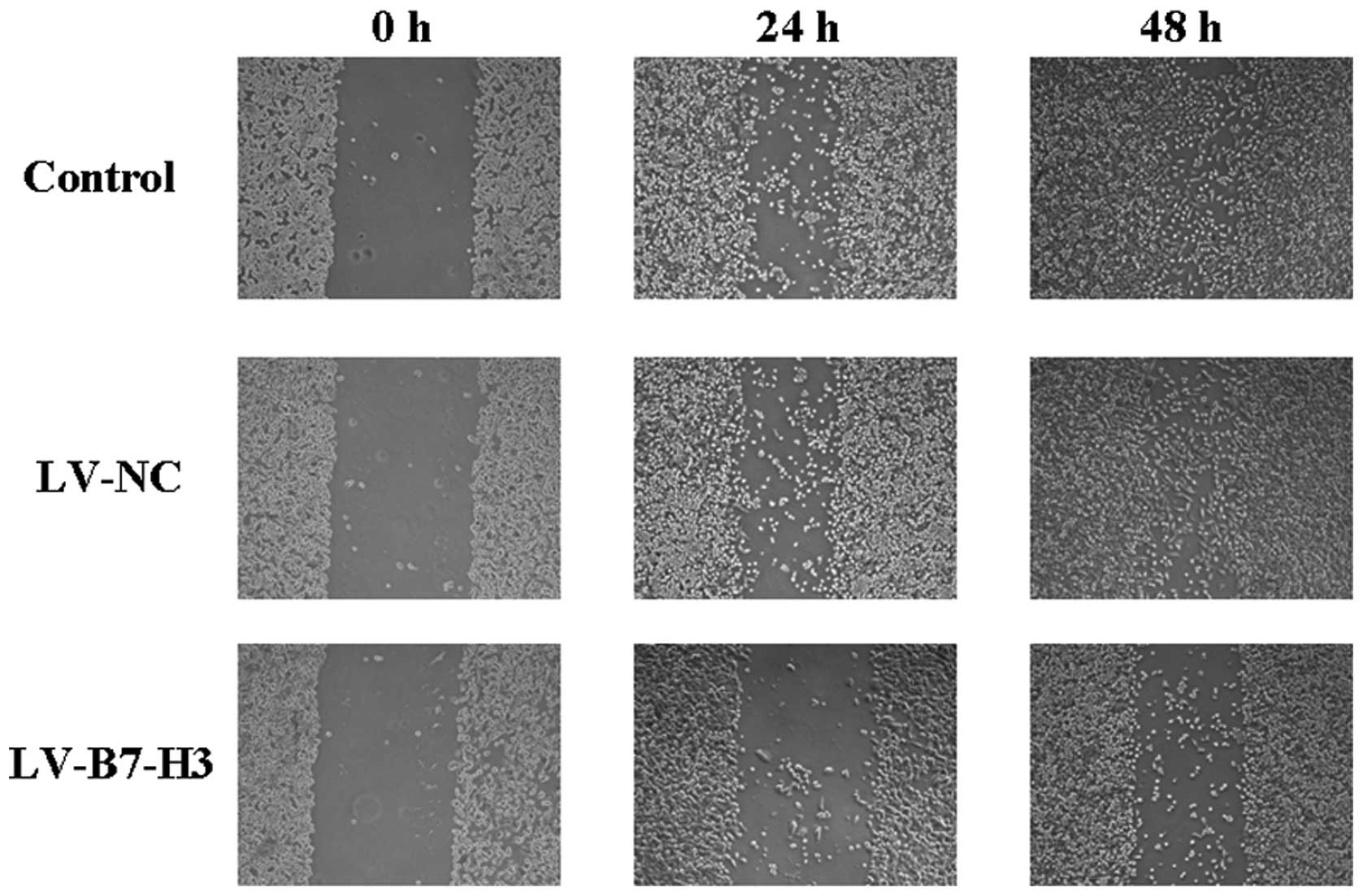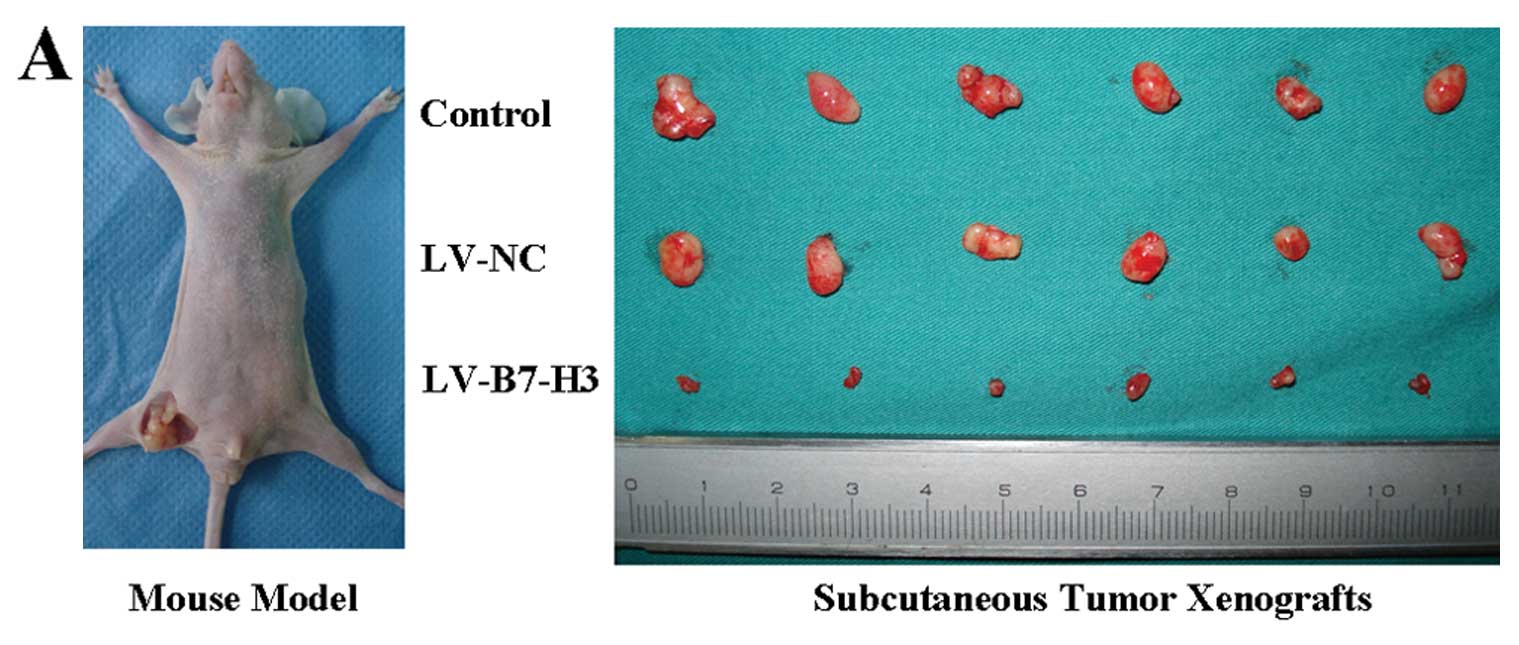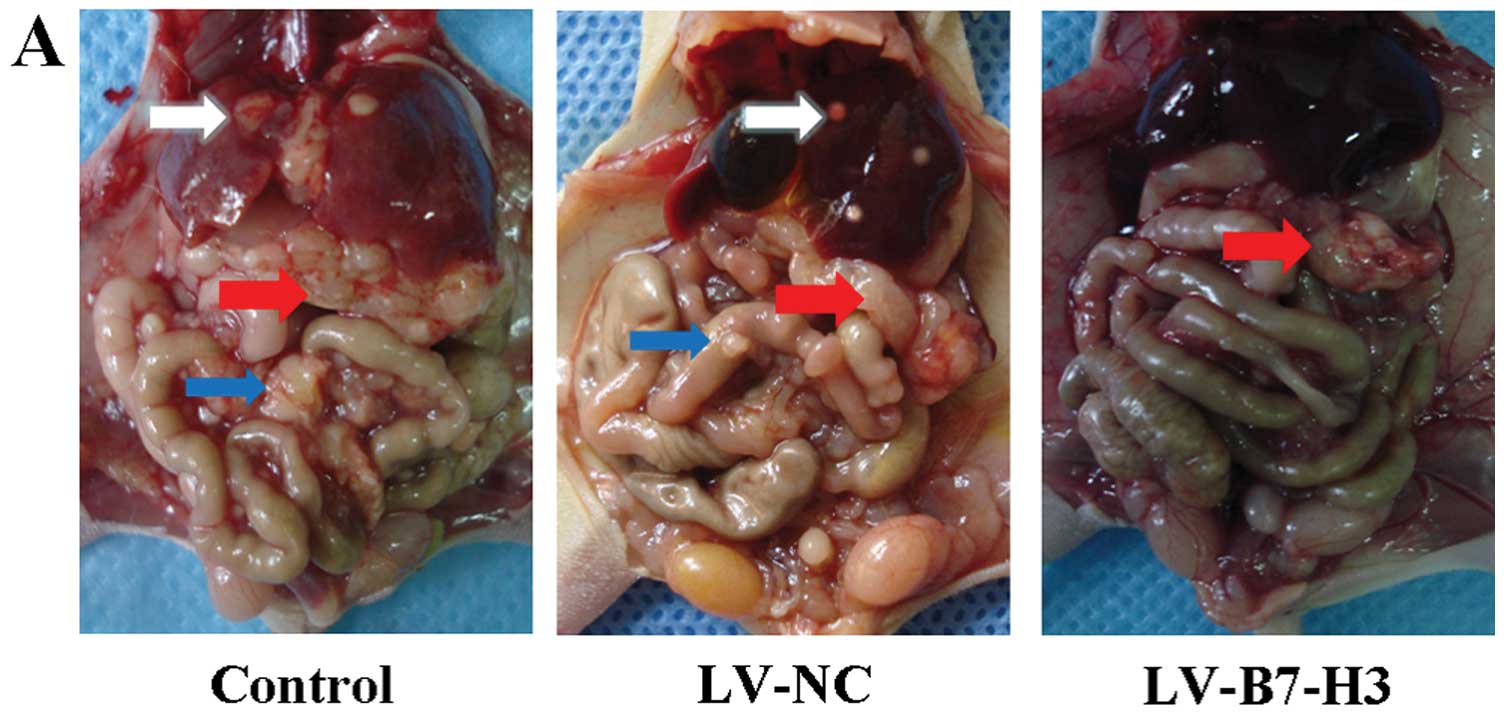|
1
|
Jemal A, Siegel R, Ward E, et al: Cancer
statistics, 2007. CA Cancer J Clin. 57:43–66. 2007. View Article : Google Scholar
|
|
2
|
Neoptolemos JP, Cunningham D, Friess H, et
al: Adjuvant therapy in pancreatic cancer: historical and current
perspectives. Ann Oncol. 14:675–692. 2003. View Article : Google Scholar : PubMed/NCBI
|
|
3
|
Hidalgo M: Pancreatic cancer. N Engl J
Med. 362:1605–1617. 2010. View Article : Google Scholar
|
|
4
|
Ghaneh P, Costello E, Neoptolemos JP, et
al: Biology and management of pancreatic cancer. Postgrad Med J.
84:478–497. 2008. View Article : Google Scholar
|
|
5
|
Pan X, Sheng W, Zhu Q, et al: Inhibition
of pancreatic carcinoma growth by adenovirus-mediated human
interleukin-24 expression in animal model. Cancer Biother
Radiopharm. 23:425–434. 2008. View Article : Google Scholar : PubMed/NCBI
|
|
6
|
Zhou J, Zhang ZX, Zhao H, et al:
Anti-angiogenesis by lentivirus-mediated small interfering RNA
silencing of angiopoietin-2 gene in pancreatic carcinoma. Technol
Cancer Res Treat. 10:361–369. 2011.PubMed/NCBI
|
|
7
|
Zhao X, Li DC, Zhao H, et al: A study of
the suppressive effect on human pancreatic adenocarcinoma cell
proliferation and angiogenesis by stable plasmid-based siRNA
silencing of c-Src gene expression. Oncol Rep. 27:628–636.
2012.PubMed/NCBI
|
|
8
|
Chapoval AI, Ni J, Lau JS, et al: B7-H3: a
costimulatory molecule for T cell activation and IFN-gamma
production. Nat Immunol. 2:269–274. 2001. View Article : Google Scholar : PubMed/NCBI
|
|
9
|
Suh WK, Wang SX, Jheon AH, et al: The
immune regulatory protein B7-H3 promotes osteoblast differentiation
and bone mineralization. Proc Natl Acad Sci USA. 101:12969–12973.
2004. View Article : Google Scholar : PubMed/NCBI
|
|
10
|
Steinberger P, Majdic O, Derdak SV, et al:
Molecular characterization of human 4Ig-B7-H3, a member of the B7
family with four Ig-like domains. J Immunol. 172:2352–2359. 2004.
View Article : Google Scholar : PubMed/NCBI
|
|
11
|
Zhang GB, Zhou H, Chen YJ, et al:
Characterization and application of two novel monoclonal antibodies
against 2IgB7-H3: expression analysis of 2IgB7-H3 on dendritic
cells and tumor cells. Tissue Antigens. 66:83–92. 2005. View Article : Google Scholar : PubMed/NCBI
|
|
12
|
Yamato I, Sho M, Nomi T, et al: Clinical
importance of B7-H3 expression in human pancreatic cancer. Br J
Cancer. 101:1709–1716. 2009. View Article : Google Scholar : PubMed/NCBI
|
|
13
|
Luo L, Chapoval AI, Flies DB, et al: B7-H3
enhances tumor immunity in vivo by costimulating rapid clonal
expansion of antigen-specific CD8+ cytolytic T cells. J
Immunol. 173:5445–5450. 2004. View Article : Google Scholar : PubMed/NCBI
|
|
14
|
Lupu CM, Eisenbach C, Kuefner MA, et al:
An orthotopic colon cancer model for studying the B7-H3 antitumor
effect in vivo. J Gastrointest Surg. 10:635–645. 2006. View Article : Google Scholar : PubMed/NCBI
|
|
15
|
Castriconi R, Dondero A, Augugliaro R, et
al: Identification of 4Ig-B7-H3 as a neuroblastoma associated
molecule that exerts a protective role from an NK cell-mediated
lysis. Proc Natl Acad Sci USA. 101:12640–12645. 2004. View Article : Google Scholar : PubMed/NCBI
|
|
16
|
Suh WK, Gajewska BU, Okada H, et al: The
B7 family member B7-H3 preferentially down-regulates T helper type
1-mediated immune responses. Nat Immunol. 4:899–906. 2003.
View Article : Google Scholar : PubMed/NCBI
|
|
17
|
Prasad DV, Nguyen T, Li Z, et al: Murine
B7-H3 is a negative regulator of T cells. J Immunol. 173:2500–2506.
2004. View Article : Google Scholar : PubMed/NCBI
|
|
18
|
Fukushima A, Sumi T, Fukuda K, et al:
B7-H3 regulates the development of experimental allergic
conjunctivitis in mice. Immunol Lett. 113:52–57. 2007. View Article : Google Scholar : PubMed/NCBI
|
|
19
|
Ghadially R: The role of stem and
circulating cells in cancer metastasis. J Surg Oncol. 103:555–557.
2011. View Article : Google Scholar : PubMed/NCBI
|
|
20
|
Chaffer CL and Weinberg RA: A perspective
on cancer cell metastasis. Science. 331:1559–1564. 2011. View Article : Google Scholar : PubMed/NCBI
|
|
21
|
Chen YW, Tekle C and Fodstad O: The
immunoregulatory protein human B7-H3 is a tumor-associated antigen
that regulates tumor cell migration and invasion. Curr Cancer Drug
Targets. 8:404–413. 2008. View Article : Google Scholar : PubMed/NCBI
|
|
22
|
Zhang G, Hou J, Shi J, et al: Soluble
CD276 (B7-H3) is released from monocytes, dendritic cells and
activated T cells and is detectable in normal human serum.
Immunology. 123:538–546. 2008. View Article : Google Scholar : PubMed/NCBI
|
|
23
|
Tsai CY, Lee TS, Kou YR, et al:
Glucosamine inhibits IL-1 beta-mediated IL-8 production in prostate
cancer cells by MAPK attenuation. J Cell Biochem. 108:489–498.
2009. View Article : Google Scholar : PubMed/NCBI
|
|
24
|
Fernandez-Martinez AB, Bajo AM,
Sanchez-Chapado M, et al: Vasoactive intestinal peptide behaves as
a pro-metastatic factor in human prostate cancer cells. Prostate.
69:774–786. 2009. View Article : Google Scholar : PubMed/NCBI
|
|
25
|
Yaqinuddin A, Qureshi SA, Qazi R, et al:
DNMT1 silencing affects locus specific DNA methylation and
increases prostate cancer derived PC3 cell invasiveness. J Urol.
182:756–761. 2009. View Article : Google Scholar : PubMed/NCBI
|
|
26
|
ElBayoumi TA and Torchilin VP:
Tumor-targeted nano-medicines: enhanced antitumor efficacy in vivo
of doxorubicin-loaded, long-circulating liposomes modified with
cancer-specific monoclonal antibody. Clin Cancer Res. 15:1973–1980.
2009. View Article : Google Scholar
|
|
27
|
Wu CP, Jiang JT, Tan M, et al:
Relationship between co-stimulatory molecule B7-H3 expression and
gastric carcinoma histology and prognosis. World J Gastroenterol.
12:457–459. 2006.PubMed/NCBI
|
|
28
|
Zhang G, Xu Y, Lu X, et al: Diagnosis
value of serum B7-H3 expression in non-small cell lung cancer. Lung
Cancer. 66:245–249. 2009. View Article : Google Scholar : PubMed/NCBI
|
|
29
|
Sun J, Chen LJ, Zhang GB, et al: Clinical
significance and regulation of the costimulatory molecule B7-H3 in
human colorectal carcinoma. Cancer Immunol Immunother.
59:1163–1171. 2010. View Article : Google Scholar : PubMed/NCBI
|
|
30
|
Zhou GX, Ireland J, Rayman P, et al:
Quantification of carbonic anhydrase IX expression in serum and
tissue of renal cell carcinoma patients using enzyme-linked
immunosorbent assay: prognostic and diagnostic potentials. Urology.
75:257–261. 2010. View Article : Google Scholar
|
|
31
|
Yang QS, Gu JL, Du LQ, et al:
ShRNA-mediated Ku80 gene silencing inhibits cell proliferation and
sensitizes to gamma-radiation and mitomycin C-induced apoptosis in
esophageal squamous cell carcinoma lines. J Radiat Res. 49:399–407.
2008. View Article : Google Scholar : PubMed/NCBI
|















